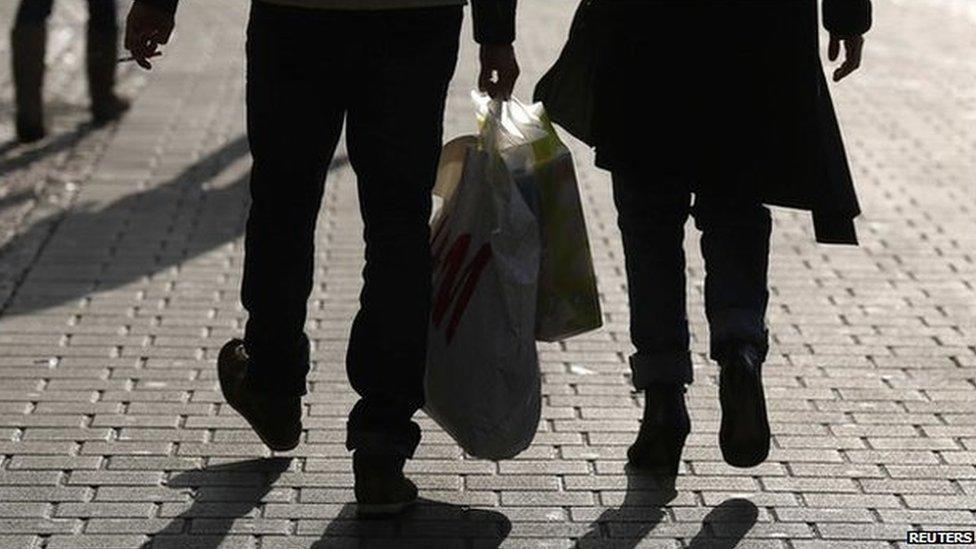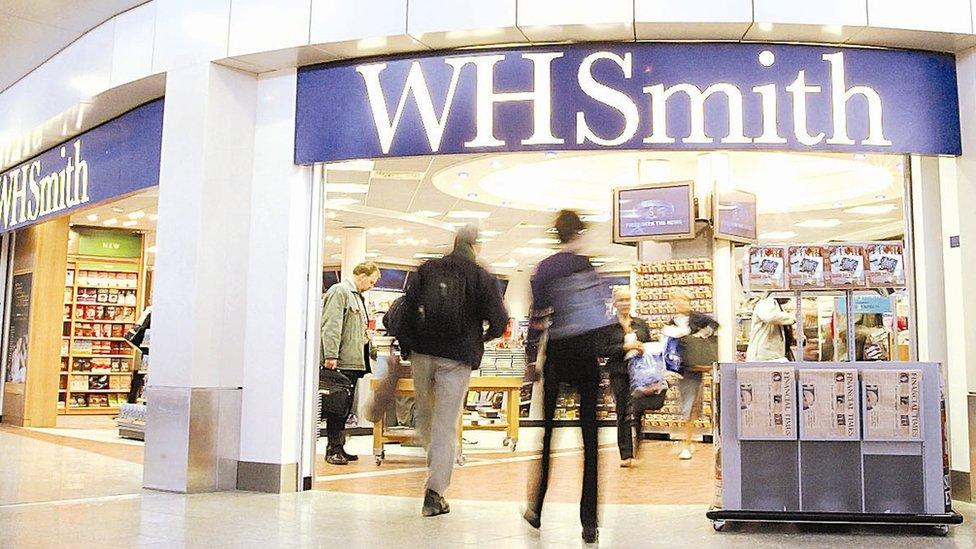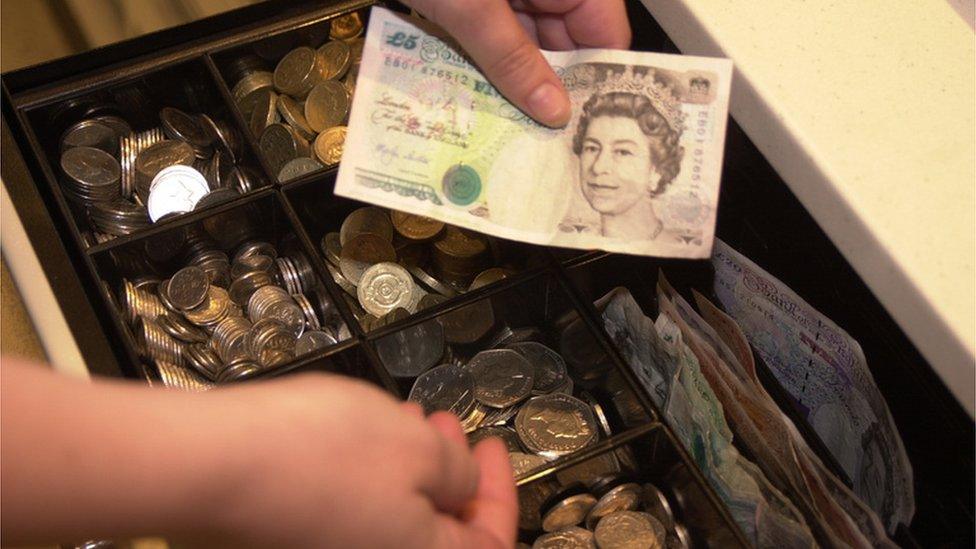Shops 'on-the-go' as footfall falls
- Published

Many brand names are withdrawing from the high street in favour of opening outlets in airports and hospitals
Five stores a week are closing on Scottish shopping streets, according to PwC and the Local Data Company.
Cheque cashing, fashion and banks are all in decline while coffee shops, charity outlets and takeaway food are thriving.
The closures have fallen slightly since the first half of last year. Given the challenge facing retail these days, five per week doesn't seem too bad.
The high street has been suffering at the hands of the out-of-town megastore.
But that model of shopping has taken a sudden turn, and left the big multiples with a lot of surplus space and a lack of customer loyalty.
The supermarket giants have turned their attention to the convenience format, fighting for space on or near the high street. Sainsbury's has just opened a new type of micro-format, half the size of its typical 'Local' store and aimed at sandwich-hungry London office workers.
Healthy options
To keep the older fashioned high street in business, companies are having to adapt quickly and sometimes quite radically.
Greggs is retreating from its role as a baker, and is pushing into 'food as you go'. It sees growth in motorway services, and it's even challenging its sausage roll image with so-called healthy options.
McColl's is known to many as a newsagent, but it too is pushing into the convenience format, with food-on-the-go options and more post office counters.
John Menzies abandoned its high street presence 17 years ago, pushing into logistics and airport ground handling, as its newspaper wholesaling business suffers from the print industry's decline.
Impulse
It sold up in 1998 to the dominant name in England - WH Smith. And that company has just reported pre-tax profits in the year to August up by 8% to £121m. Revenues have grown by only 1% to £1.18bn.
Underlying that is a tale of two divisions within the retailer. 'High Street' has seen sales fall 4% in the year, while 'Travel' is up 9%.
In the like-for-like comparison, comparing outlets that traded continuously throughout the 12 months, the picture is less clear - Travel up 4%, High Street down 3%. Travel profits were up 10%, High Street by only 2%.
Underlying those numbers is the challenge of reinventing the newsagent. WH Smith bean-counters classify newspapers with 'impulse' - those £1 bars of Galaxy chocolate, Haribo sweets and chewing gum.
With such promotions, as well as cut-price books with your paper, the best that can be said of Smith's newsagent operation is that sales were flat and it has grown its market share. The euphemism is that newspapers are "challenging".
Colouring in
In place of newsprint, the emphasis is shifting - like Greggs and McColls - to food-on-the-go and meal deals, for workers on the move and office inhabitants eating al desko.
Stationery gives good returns, while book sales were down 2% in the past year. Harper Lee as well as EL James' latest 'Grey' book helped, but the stand-out success story in book publishing in the past year has been colouring-in books for grown-ups.
The biggest name in that is Johanna Basford, a young artist working from her Aberdeenshire studio. Her first book, Secret Garden, was published a year ago and has sold more than 1.5m copies.
But the growth prospects are away from the high street. 'Travel' means the outlets at stations, airports and now hospitals.

WH Smith has 163 foreign units, including airports in Australia, the Persian Gulf and India.
Airports are seeing more passengers, as are railways. With footfall in such transport hubs, that is also where Royal Bank of Scotland is looking to open branches while retreating from the high street.
The business model in airports is complex, because rent is dynamic, depending on turnover and passenger footfall.
WH Smith is pushing into foreign markets, securing space in Sydney and Brisbane airports, and with footprints in the Persian Gulf and India.
It now has 163 foreign units, with nearly 40 soon to open. That rate of growth in space helped sales rise by 33% last year, to £57m.
There's a claim that its airport business overseas is out-performing previous incumbents in those retail outlets by 25%.
Healthy profits
The company faced furious denunciations in the newspapers it sells about the prices being charged at its outlets in NHS hospitals. But it's telling shareholders that hospitals are a growth area - up 19% last year, and 6% in like-for-like space.
Of new openings in 'Travel' in this financial year, half are expected to be in hospitals. And WH Smith is partnering with Marks & Spencer, as they open up adjacent food outlets.
That's what you find when you walk into Glasgow's new Queen Elizabeth University Hospital.
There's some experimentation too. The company is trialling a new high street brand, cardmarket: it has 40 franchised stores under a new 'WHSmith LOCAL' branding: and it has its own personalised card business online.
Such diversification shows there's no single answer to the challenge in high street retailing. And nor is the current response guaranteed to remain the right one.
- Published14 October 2015
